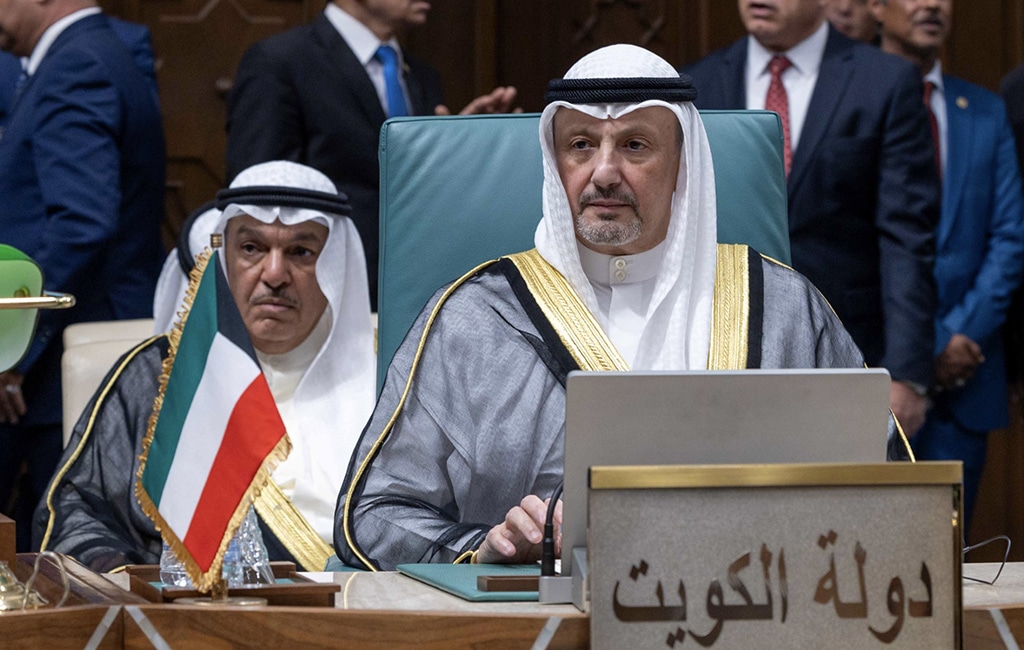CAIRO: The Third Arab-Japan Political Dialogue Forum, convened at the foreign minister level at the Arab League on Tuesday, adopted a joint statement highlighting the importance of cooperation to address the challenges facing the international community. The conferees expressed hope to open new horizons for cooperation in the political, economic, cultural, educational, environmental, and energy areas, according to the statement. The ministers agreed to step up joint efforts in the face of international challenges, including the combat against terrorism, the promotion of sustainable development and energy security, and the response to food insecurity.
They underscored the role of coordination of regional and international responses to humanitarian disasters and the need to alleviate the burdens of the refugee-host Arab countries. They agreed to work together for the promotion of international peace, security, and stability through lobbying for peaceful solutions to conflicts and avoiding the use of force in settling differences pursuant to the principles of the UN Charter and international law. On the Middle East conflict, the ministers stressed the need to end the Zionist occupation of all Palestinian and other Arab territories occupied in 1967, including East Jerusalem and the Syrian Golan Heights, in order to reach a fair, comprehensive, and durable peaceful solution.
They urged the resumption of the peace talks on the final status issues, including Palestinian refugees and Jerusalem status, in keeping with the provisions of the relevant UN resolutions, international law, the two-state vision, and the Arab peace initiative of 2002. They stressed the importance of maintaining the historical status of the holy city of Jerusalem and backing the Hashemite custodianship of Jerusalem’s holy sites. In this context, the Arab foreign ministers praised Japan’s longstanding support for Palestine in its effort to achieve economic independence, citing in this regard the Japanese initiative Corridor for Peace and Prosperity" and the progress in Japan’s development of the Jericho (Ariha) Agricultural Industrial Park (JAIP).
 Officials take a group photo after the 3rd session of the Arab-Japan Political Dialogue Forum, hosted by the Arab League. – KUNA photos
Officials take a group photo after the 3rd session of the Arab-Japan Political Dialogue Forum, hosted by the Arab League. – KUNA photosRegarding the Libyan crisis, the conferees called for a Libyan-led UN-backed solution and holding free and transparent legislative and presidential elections as early as possible. They renewed support for the efforts to reunify the Libyan state institutions and the efforts of the 5+5 Libyan Joint Military Commission to end foreign military and mercenary presence in the country within a specific timeframe. On Yemen, the ministers reaffirmed their support for the country’s sovereignty and stability, commending the efforts of the Presidential Leadership Council to restore peace and security based on the principles of the Gulf Cooperation Council initiative and its executive mechanism and the provisions of UN Security Council Resolution 2216.
As for Sudan, the conferees stated their support for the outcomes of the Sudan-neighbors summit, hosted by Cairo in July, echoing the call for an immediate and durable ceasefire. Regarding the three occupied UAE islands in the Arabian Gulf, the ministers reiterated support for UAE efforts to reach a peaceful solution through bilateral negotiation as per the provisions of international law and the UN Charter. Earlier, Kuwait Foreign Minister Sheikh Salem Abdullah Al-Jaber Al-Sabah delivered a speech to the third session of the Arab-Japan Political Dialogue Forum.
The ministerial session, co-chaired by Egyptian Foreign Minister Sameh Shoukry, from the Arab side, and Japanese Foreign Minister Yoshimasa Hayashi, was attended by the League’s Secretary-General Ahmad Abul-Gheit. In his speech to the gathering, Sheikh Salem said the Arab countries and Japan maintained friendly relations, fruitful cooperation, and constructive understanding in various fields. Japan continues to be one of the strong supporters of the fair causes of the Arab world thanks to the common grounds and shared values of respect for the rules of international law, noninterference in the domestic affairs of other nations, and prioritizing peaceful dialogue as a means of resolving conflicts, he said.
"The state of Kuwait and friendly Japan enjoy deep-rooted friendship and a long history of cooperation dating back to the era before founding diplomatic relations in 1962. "On this occasion, I’d like to express great esteem for the relationship with Japan, which bore fruit in such areas as investment, trade, and energy," Sheikh Salem, who leads the Kuwait delegation to the meeting, pointed out. He noted that Kuwait is the third-largest exporter of oil to Japan, voicing hope for building on past achievements and promoting relations even further.
The Kuwaiti minister noted that the ongoing meeting coincided with exceptional global conditions, which require strengthening relations between both sides to contribute to world peace and security and achieve sustainable development. He stressed the need for joint efforts by the Arab and Japanese sides to address the current political and economic challenges of today’s world. He reaffirmed Kuwait’s commitment to supporting the Palestine question and the efforts to find a fair, durable, and comprehensive solution to this question based on the Arab peace initiative and the Japanese vision for a "Corridor for Peace and Prosperity. - KUNA











